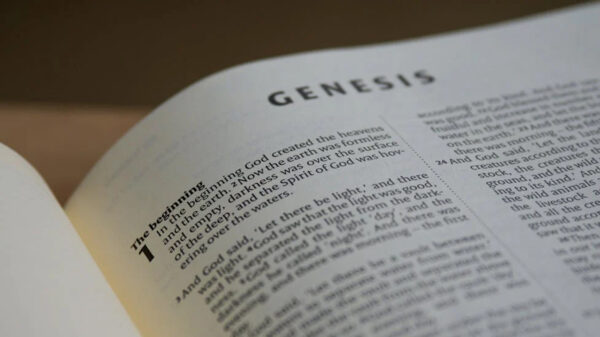
Bart Ehrman
Studied at Moody Bible Institute
Graduated from Wheaton College
Received his PhD and MDiv from Princeton Theological Seminary
Former President of Southeast Region of the Society of Biblical Literature
After reviewing Ehrman’s academic credentials, one can’t help but think he might be right about his conclusions related to the evidence. How can someone this well-trained be mistaken? Part of the explanation, it seems to me, is found in the difference between evidence and proof. I never tell people I can prove the reliability of the New Testament; instead, I tell them I am happy to share the evidence that convinced me of the Bible’s reliability. While evidence is a matter of objective truth, proof is in the mind of the evaluator, and many of us resist the truth in spite of the evidence. I did this for many years.
I understand now that before I can ever convince someone with evidence, God will have to do the work of regenerating the heart of my listener. It’s not up to me; God’s calling can only be done by God Himself. And that’s the difference between evidence and proof. We can offer evidence all day long: facts about eyewitness testimony, archeological verification and scientific harmony, but none of this will serve as proof unless God first changes a heart.
Evidence
The facts we offer to support our claims of truth
Proof
What we infer from the facts offered
Ehrman may be an excellent example of this, I don’t know enough about his personal life or situation to comment with certainty, but it is interesting that the man he so admired and trusted, his mentor at Princeton, Bruce Metzger, was also interested in the evidence of scripture:
Bruce Metzger
Received his BA, MA and PhD from Princeton Theological Seminary
Served on the board of the American Bible Society and United Bible Societies
Authored approximately 20 books (including one with Ehrman)
Received the Burkitt Medal for Biblical Studies (British Academy)
President of the Studiorum Novi Testimenti Societas
President of the International Society of Biblical Literature
President of the North American Patristic Society
Metzger had an even higher educational and professional pedigree than Ehrman, yet came to a very different conclusion about the reliability of the New Testament. Metzger is widely considered one of the most influential Biblical scholars in history and he was a committed Christian, ordained as a pastor in the Presbyterian Church. When Lee Strobel interviewed him at the age of 84 for Lee’s book, “The Case For Christ”, Metzger said:
“I’ve asked questions all my life, I’ve dug into the text, I’ve studied this thoroughly, and today I know with confidence that my trust in Jesus has been well placed. Very well placed.”
How can Metzger come to such a different conclusion than Ehrman? Was he looking at different evidence? No. Both men are examining the exact same set of facts, yet coming to two very different conclusions. How can this be? All of us, as fallen humans, are at war with the God who created us. All of us have an enmity toward God that must first be removed if we are ever going to see the evidence clearly. Only God can do such a thing. So, while I am always delighted to examine the evidence with someone, I recognize that I am only one of several means by which God can reveal Himself to those He has already called. I am prepared to make the case, but only God can turn the evidence into proof. All of us, as fallen humans, are at war with the God who created us. All of us have an enmity toward God that must first be removed if we are ever going to see the evidence clearly. Share on X

J. Warner Wallace is a Dateline featured Cold-Case Detective, Senior Fellow at the Colson Center for Christian Worldview, Adj. Professor of Christian Apologetics at Talbot School of Theology, Biola University, author of Cold-Case Christianity, God’s Crime Scene, and Forensic Faith, and creator of the Case Makers Academy for kids.
Subscribe to J. Warner’s Daily Email
Save
J. Warner Wallace is a Dateline featured cold-case homicide detective, popular national speaker and best-selling author. He continues to consult on cold-case investigations while serving as a Senior Fellow at the Colson Center for Christian Worldview. He is also an Adj. Professor of Christian Apologetics at Talbot School of Theology, Biola University, and a faculty member at Summit Ministries. He holds a BA in Design (from CSULB), an MA in Architecture (from UCLA), and an MA in Theological Studies (from Gateway Seminary).







































Pingback: Proof, Evidence, and Volitional Disbelief | Dispelling Christianity
Pingback: Is Christian Education Simply a Matter of Religious Indoctrination? - Cross Examined - Christian Apologetics Ministries | Frank Turek | Christian Apologetics | Christian Apologetics Speakers
Pingback: Is Christian Education Simply a Matter of Religious Indoctrination? | Apologetics ForumApologetics Forum
Pingback: Nine Steps to Presenting the Case for Christianity | Apologetics ForumApologetics Forum